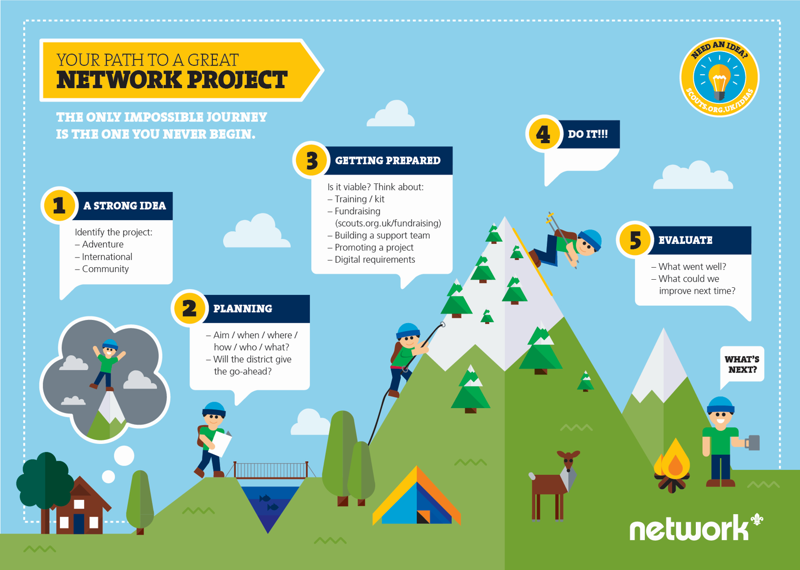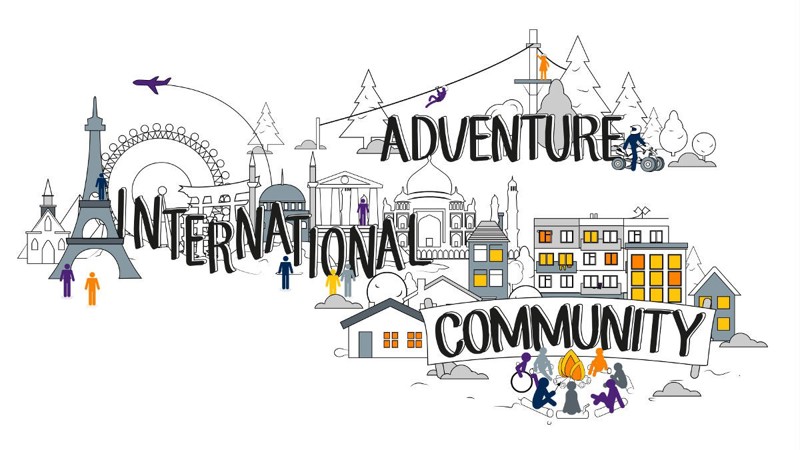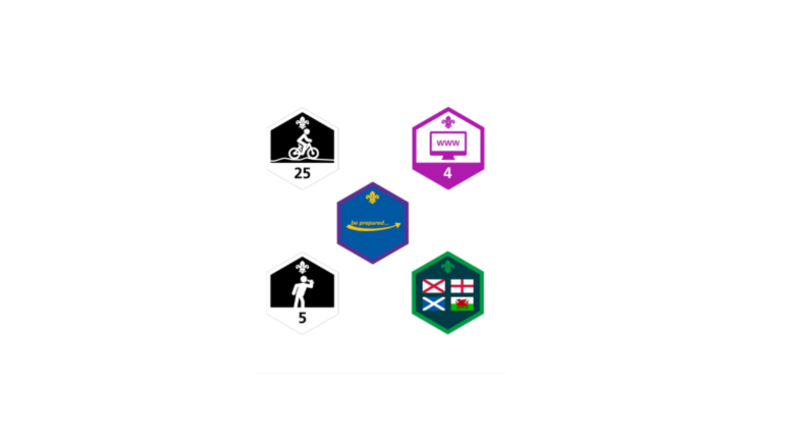Projects and events
The Scout Network programme is based around projects and events, and many people have been asking what is meant by these terms and what's the difference, here we explain.
Projects and events both require a group of people to come together with the common purpose of achieving something worthwhile. Both projects and events will have at least one element of them built around the Scout method and educational objectives but most importantly they will be:
- Youth Led and Youth Driven
- Challenging - offering young adults opportunities to extend themselves beyond their current horizons – both as a group and as an individual
- Rewarding and enjoyable
- and for projects, have a lasting impact, or an objective beyond the immediate team.
An event
An event is a single activity that may take place at a given time. It could be repeated but there is no link between repeated occurrences.
Example activities:
- Climbing Session
- Speaker from an NGO discussing a topic
- Social evening to go bowling
- International cooking evening
Of course, running an event may give you ideas for a larger project, also projects may culminate in an event for members to participate in. Do not worry too much about your ideas being called events or projects – just get on with planning them!
A project
a. A project is a series of tasks, planned from beginning to end.
b. A project is bounded by time, resources and a required result/outcome.
c. A project should have an impact beyond the immediate project group
Example projects:
- Community – Supporting a Local school for learning young people with learning difficulties to remodel their sensory garden,
- Adventure – A hillwalking weekend in the Peak District
- International – Forging links with Scouts in your twin-town culminating in home hospitality visits for both groups.
Projects can run across multiple Districts, but there should be agreement between the District Scout Network Commissioners, with one of the District Scout Networks taking primary responsibility – being the ‘host’.
The process of undertaking a project can be broken down into five key, as shown in the image below. These are:
- Setting out – Identify what are you going do to.
- Plan – Work out how you will do it
- Prepare – Get everything you need into place
- Execute – Just do it!
- Evaluate and Celebrate
Between all of the steps you also need to review that you are ready to move to the next step – a wise man once said “There is no point in running – until you know where you are heading!”
You will have people within the District who have been running this type of project activity and we have methods and techniques that work. The stages below are not the only way to do a project but some guiding principles around the five key areas.

First, you must identify what the project is.
Questions Network members could discuss:
1. What are you planning to do?
2. Why are you planning to do it?
3. What pillar of the programme will it fit under?
- Community
- International
- Adventure
4. Are you going to be earning/ working towards top award?
5. Will it be enjoyable – will people want to take part?
To generate ideas, why not have a brain storming session with your Network and develop ideas as a group? There are various methods you could use such as brain storming or mind maps. Check out the ideas.
If this is your first project, start with something modest – do not set out to conquer Everest as your first project. Also, ask yourself if anyone has done this before – and if the answer is no, ask yourself why not! Make sure you have a firm idea before you move onto the next step.
This is where you get down to the bones of the idea and come up with a plan. The previous section was just about getting an idea but this is all about having an idea that is viable.
Think about:
Aim: What do you hope to get out of your project? Think about any awards you would like to achieve or any goals you want to reach. This aim should be what you are working towards throughout the project.
Where: Where is this project going to take place? If it's taking place away from where you are based than it is important to fully research where you are planning to go, particularly if it's abroad.
Who: Who is going to be in the project team? Will it just be open to people in your Network or will you open it up to your county? What about other counties or even the whole of the UK?
What: What exactly are you going to be doing? This is where you need to get together an itinerary for the project.
When: This is where the dates come in. For some projects they will be a week or two weeks in duration. Whereas others may be once a week for 6 months. Think about when the project starts, when it finishes and all the key dates in between.
How: So you have the idea but how are you going to facilitate this? You need to think about things like how you are going to get there, how are you going to fund it and whether you need any training. Once you have a plan together you need to talk to your District Scout Network Commissioner and get them to look at your project to check it is viable to continue with.
This is the stage you need to start carrying out what you have planned in the previous section.
Training: Do you need certain skills? Do you need to attend a course? This is the time to get trained up.
Kit: Sometimes for projects you might find you need specialist kit, even if you don’t, make sure you have enough tents to sleep 20 people. It's very easy to just assume but make sure you do actually have the kit in place and that it is in a condition to use.
Fundraising: There is a variety of thing you can do to fundraise, from a barn dance to a car boot sale. Check out the fundraising ideas.
Promote the project: Tell people about it, get support. Make sure you have put your project onto the digital platform, this allows other groups to see what you are doing and is also where you might gain some participants from! Are you ready?
Execute: Make sure you document it as you go along so you can share your experiences with others and also have a memento to look back on. Think about how you’ll use social media throughout the event to keep your supporters up to date with progress…and do remember to enjoy yourselves!
An important part of the project is to evaluate it at the end. What went well? What could you improve next time?
Then it is time to celebrate your team’s achievements and look forward to your next project. Remember to include those who supported you and those who might take part in the next project
What will you do next? – The adventure continues.
We said at the start that you should review your project at all stages before moving on to the next and you should also review what you have done at the end, to help others that will follow in your footsteps. Think about finding a critical friend, someone who you trust that will ask you some difficult questions (and may also have some of the answers). It's much better to be answering these questions over a coffee rather than with an angry District Commissioner shouting down the phone.

Network Commissioners can submit a request for a Network regional or national event to be hosted on scouts.org.uk/events.
Note: For this event to feature on the website, this form must be completed at least two weeks prior to the event taking place. We're only able to promote regional or national Network events.
